With Joe Biden securing the Democratic nomination for President, speculation now turns to his selection for Vice President. Biden has already declared he will select a woman, and many have speculated it could be a woman of color. The selection of a woman of color is something that civil rights icon John Lewis has specifically recommended. There are many great candidates to pick regardless of sex or race, but I am here to look at one possible candidate from right here in Florida: Congresswoman Val Demings.
Background
Val Demings grew up in Jacksonville, going to school at a time when the district was still segregated. She went to FSU to get a degree in criminology and worked as a social worker in Jacksonville. She then became a member of the Orlando police department in the 1980s. She worked there for decades and became the Chief of Police (the first woman to hold the roll) in 2007. When she retired from the force in 2011, she was credited with the city’s reduction in gun violence. Not long after this, she announced her run for Congress.
First Run for Congress
Demings first ran for Congress in 2012, challenging incumbent Republican Daniel Webster. The race was for the newly-drawn 10th district, which included parts of Orange, Polk, and Lake counties. Webster, who served as state house Speaker in the late 1990s and then was a State Senator till 2008, won a seat in Congress in 2010; defeating Democrat Alan Grayson. Webster had easily defeated the controversial Grayson, winning by double digits in a seat that just barely voted for Rick Scott in that years Gubernatorial contest.
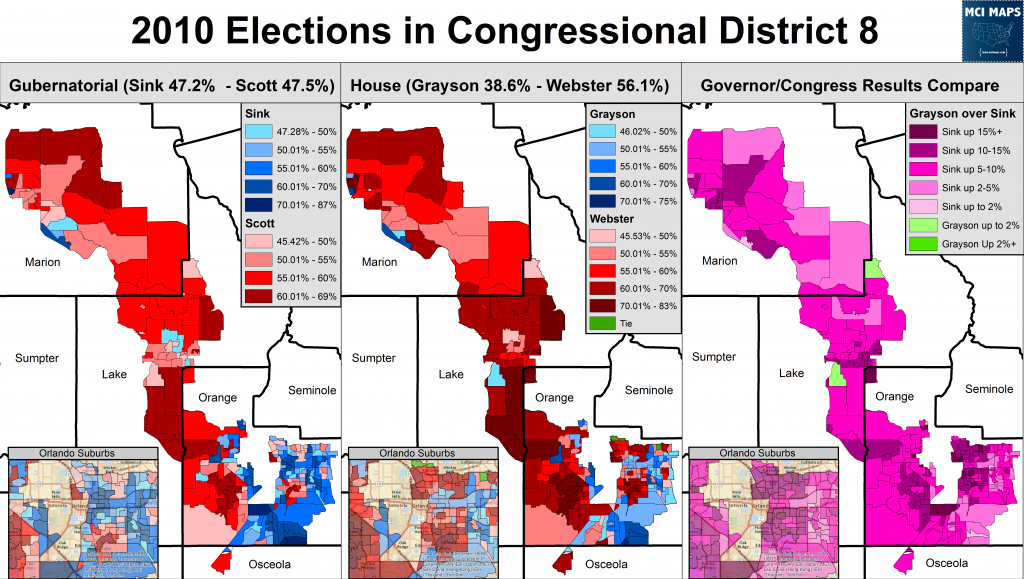
Redistricting altered the borders, losing Marion and Osceola, but Webster already represented parts of the Orange and and Lake portions of the new 10th district.
Demings’ entry into the race in 2011 gave the Democrats a strong recruit. She even out-raised Webster in late 2011 and early 2012. However, race rankers consistently pegged the seat in the “Likely GOP” camp. However, as the year dragged on, it became clear the race was something Republicans could not take for granted. Demings ran an aggressive campaign and was able to court big help from other Democratic PACs. She was also aggressive against Webster, hitting him for actions he took all the way back to his days as Florida House Speaker. As the summer and fall wore on, it was agreed the race had become a possible pickup shocker for Democrats. Most rankings moved to “Lean GOP” or “Tossup”.
In the end, Webster managed to barely hold on to his district – winning by just over 3%. He won in the Orange and Lake portions of the district, but lost the Polk share. He won, however, while under-performing Mitt Romney’s 7 point win in the district.
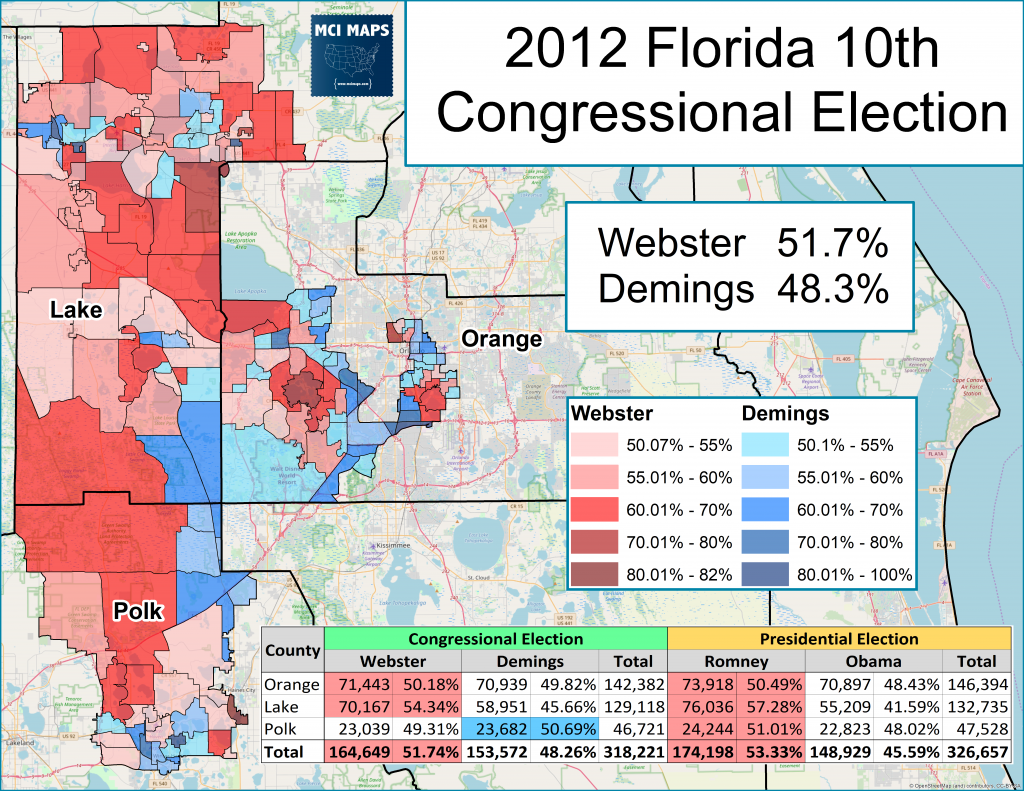
Demings managed to outperform the Presidential margin in all three counties, but did so the most in Lake County. She out-performed Obama in almost every precinct in the district.
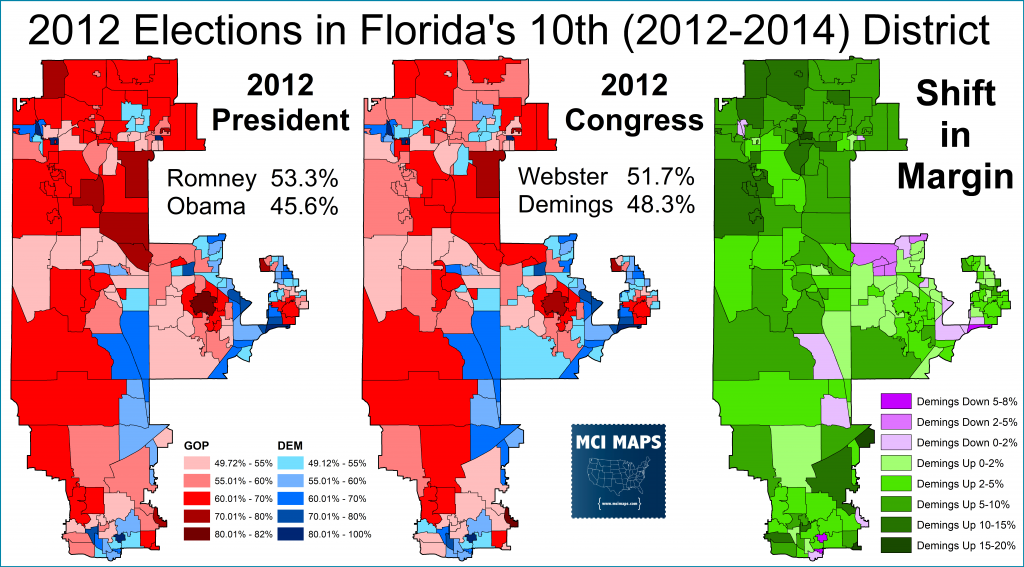
Demings raised $1.9 million in hard money, outpacing Webster by $400,000. While she ultimately lost, her close showing and fierce campaign put her on the future recruit list for national Democrats.
The party tried to recruit her for a rematch in 2014, but she declined. Webster would go on to win re-election in 2014 by a 23% margin, despite the district only voting for Rick Scott’s Governor re-election by 9%.
Mid-Decade Redistricting
In 2015, the Supreme Court of Florida threw out the states Congressional map. The ruling specifically targeted key districts, but the result was a complete map redraw. One major effect was the old 5th Congressional district, which used to pack African-Americans in from Jacksonville to Orlando, was struck down.
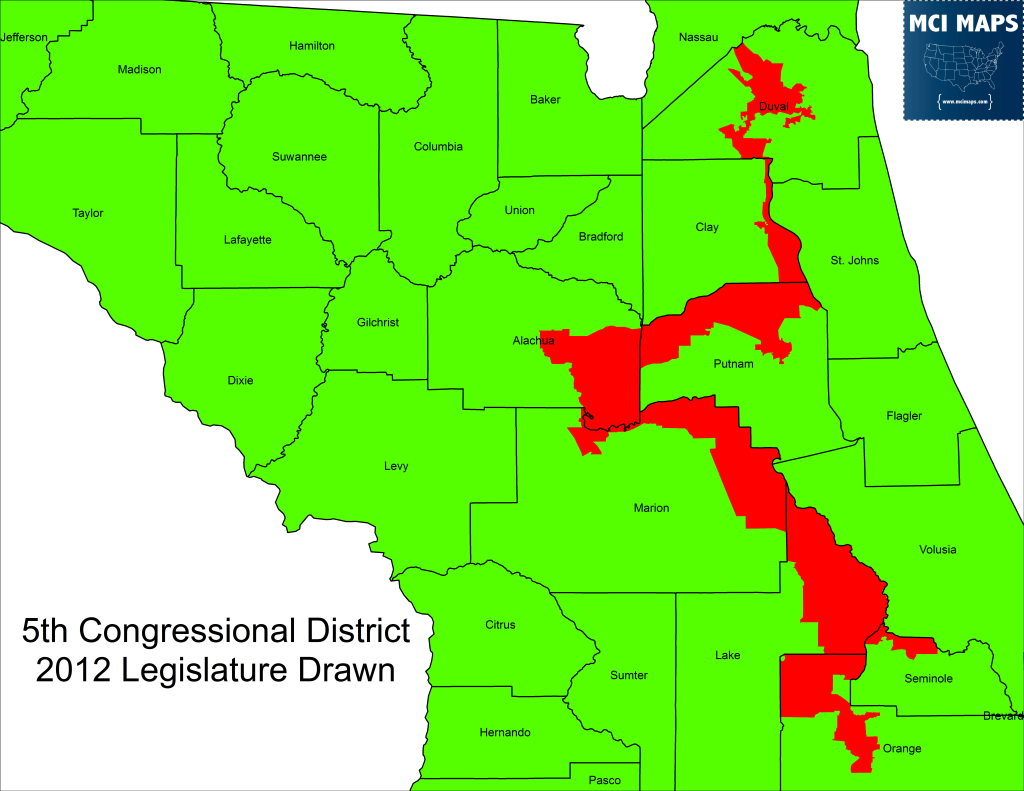
The saga of the 5th district can be read about in my article. The result of the strike-down was that African-Americans in the Orlando area would have to be paired with a new district. When the legislative staff revealed its first proposal, the 10th district was drastically altered. The seat became entirely centered in Orange County, taking in the African-American vote; while at the same time losing Polk and Lake counties.
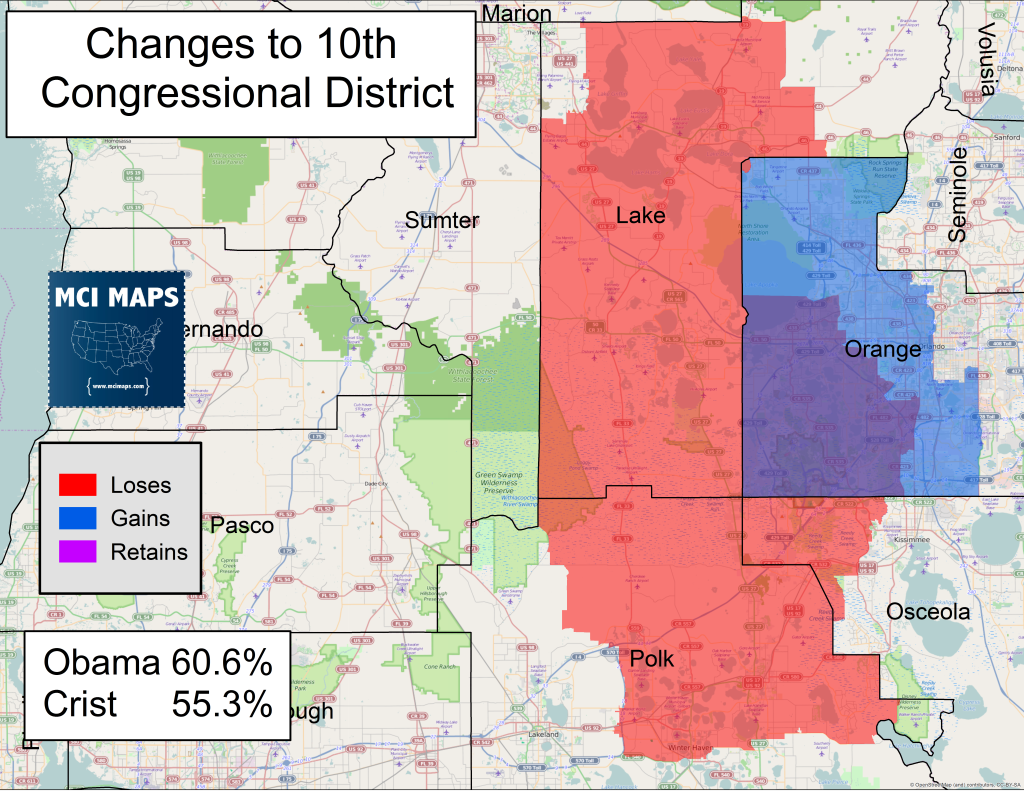
The new district was plurality white. Registration from 2018 shows large pockets of both African-Americans and Hispanics.
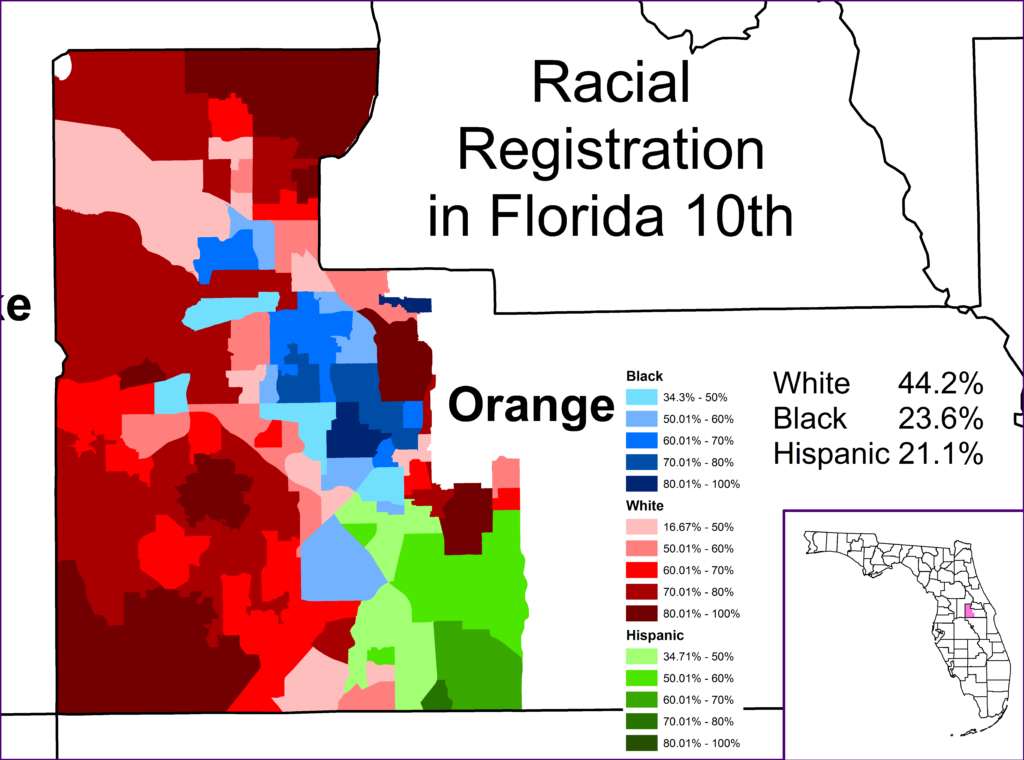
As a result of the new lines, the 10th became very Democratic. The seat was so blue that Congressman Webster protested throughout the process that he was being victimized by the lines. These complaints were mocked by Democrats and the GOP-led legislature, having already written him off as a casualty of the process, ignored his complaints.
The new district was, in practice, a likely Africa-American seat. A democratic primary would likely be around 50%+ African-American, and the seat was always Safe Democratic in November. Several democrats looked to run for the seat, including State Senator Geraldine Thompson and former State Party Chair Bob Poe. Val Demings opted to run as well and quickly got the backing of the Democratic Party. For the entire campaign, Demings was viewed as the front-runner. In the end, she crushed both Poe and Thompson, getting 57% and taking every precinct.
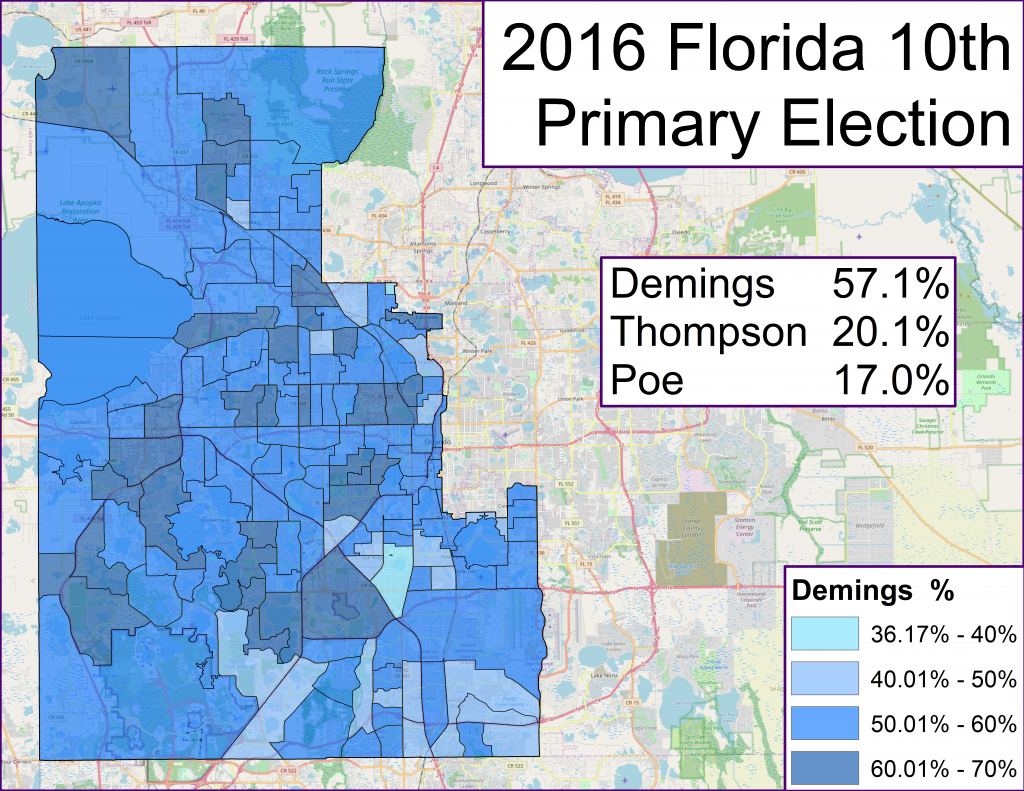
The general election was a walk for Demings, she easily won by 30 points, only losing rural northern precincts and clusters of upper-income communities that are reliably GOP.
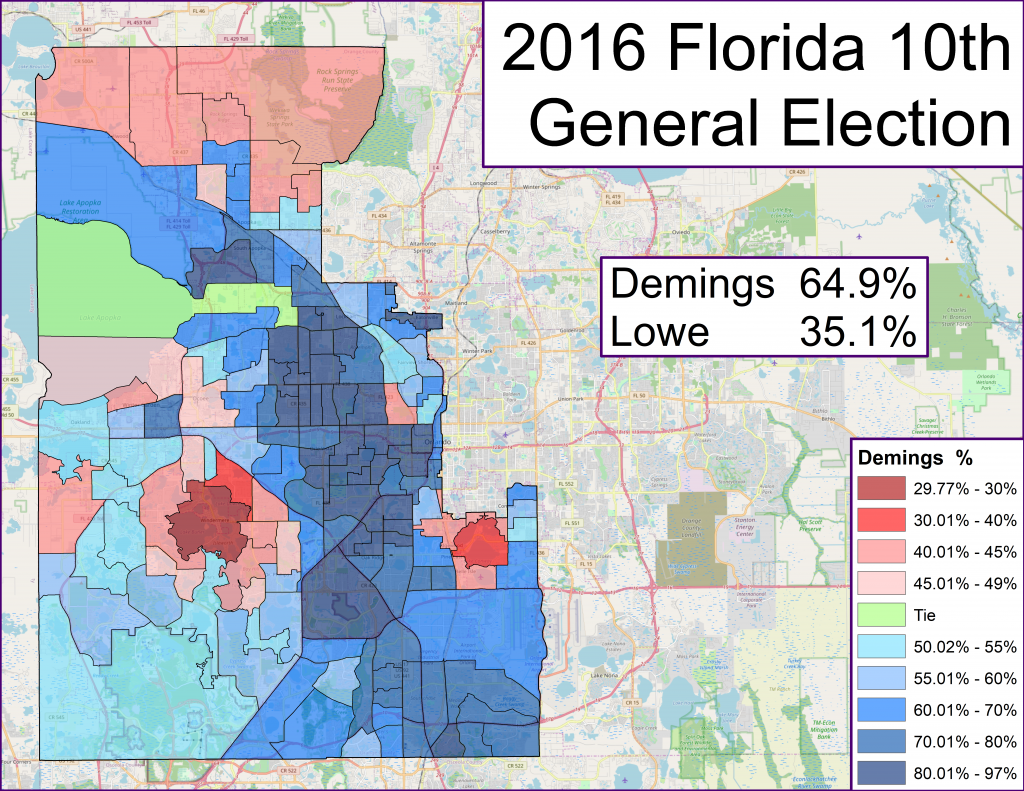
Meanwhile, Daniel Webster landed on his feet after all. He opted to jump over to the neighboring 11th district, a safe GOP seat that saw Republican Congressman Richard Nugent retire. Webster had a decent primary win over Nugent’s chief of staff, Justin Grabelle. Webster notablly was strongest in areas he already had run in further east.
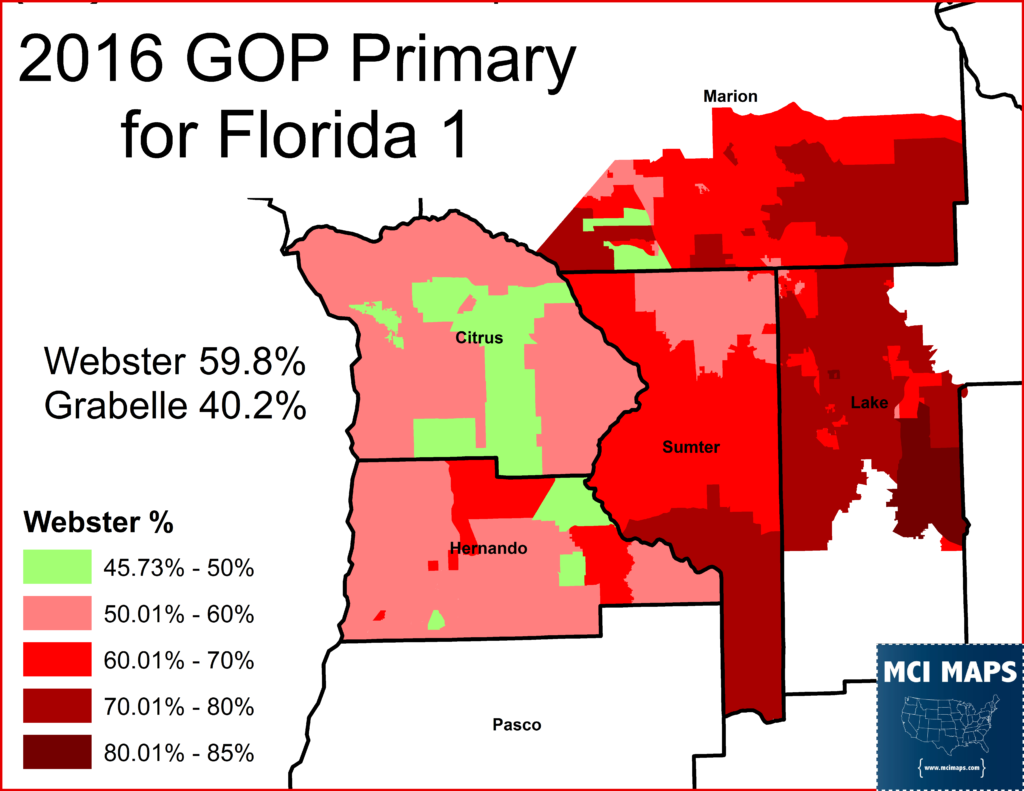
After the primary, Webster easily won the general in a Safe GOP seat.
On to 2018, Demings didn’t even get a GOP challenger. All she got was another democratic opponent, Wade Darius, who largely self-funded his race with a $40,000 loan. The primary was open to voters of all parties due to no one filing against Demings for November. Demings won with 75%.
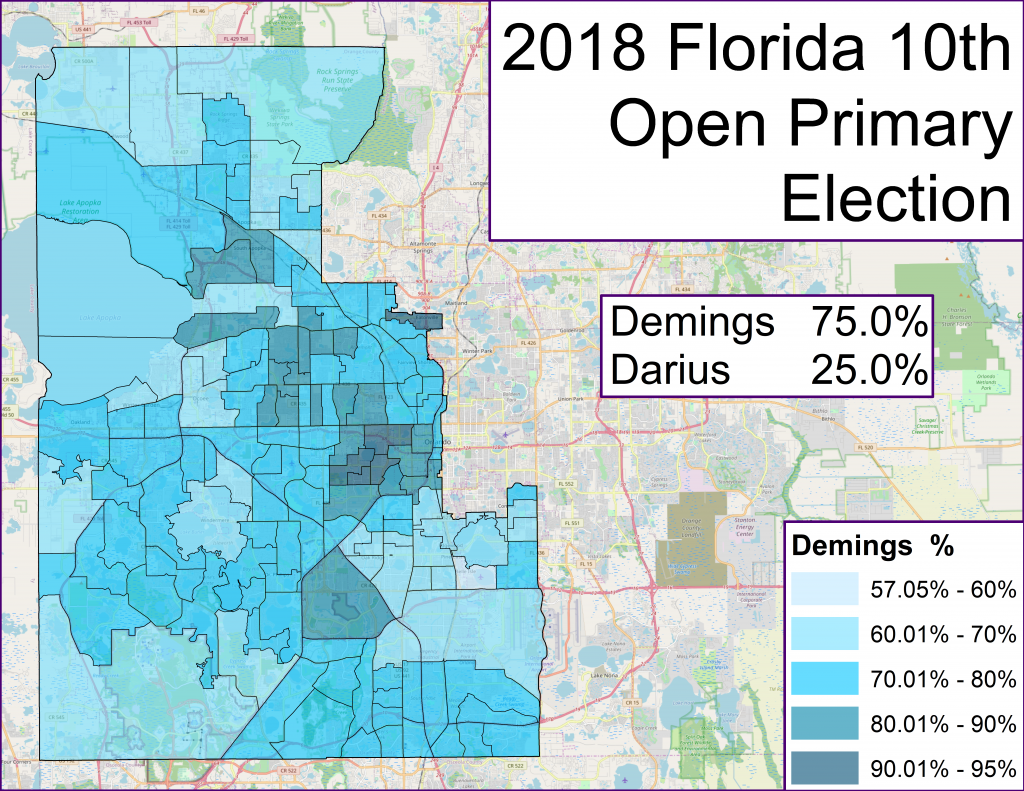
Like her last primary, Demings won every precinct. Demings went on to serve as one of the impeachment managers against Donald Trump.
Family
Whoever is picked will have not only their life scrutinized, but their family as well. Val is married to Jerry Demings, whom she met while the both worked on the police force together. He became police chief in 1998, then the first African-American to hold the job. He was elected Orange County Sheriff in 2008 and was always easily re-elected. His 2016 re-election saw him outpace Clinton.
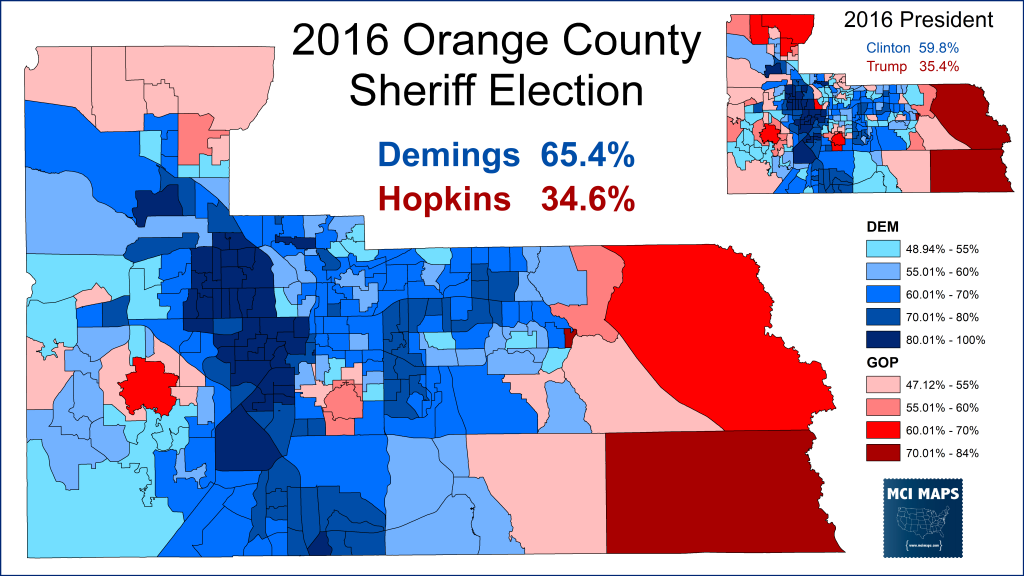
Two years later, Demings ran for and was elected Orange County Mayor. He faced off against two serious opponents but easily won the non-partisan race – avoiding a runoff.
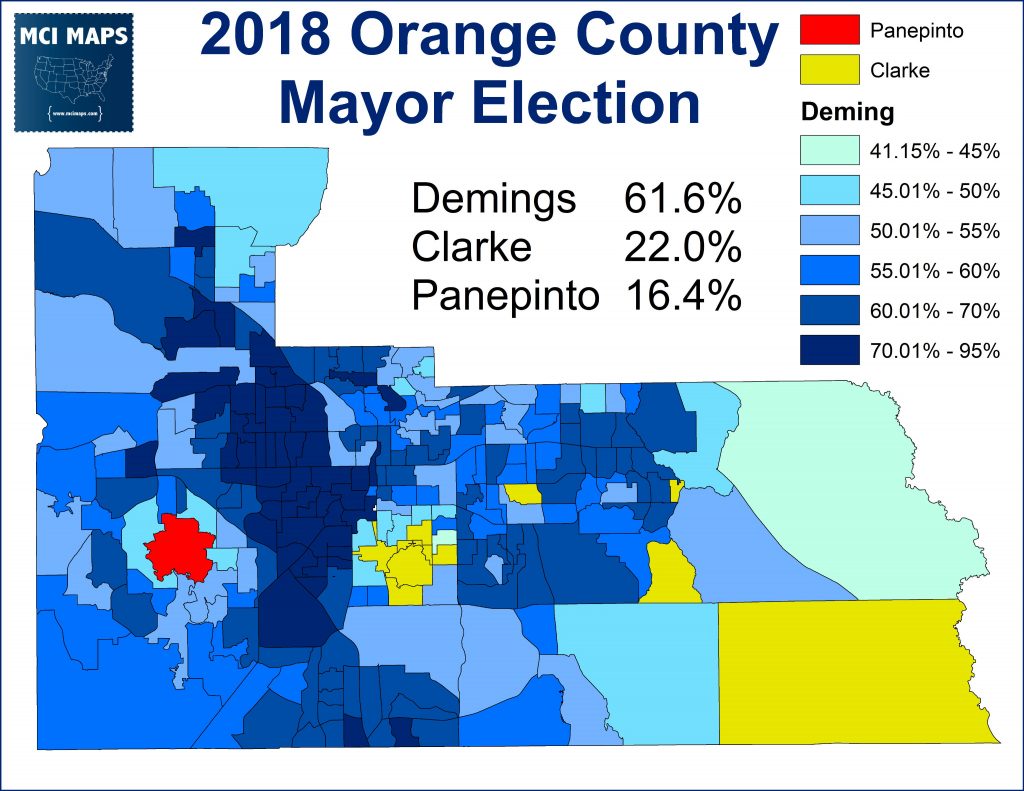
Val and Jerry are both considered powerful politicians in the Orlando area and have clearly earned the support of the voters.
Conclusion
Demings may be just a wildcard of the selection, but to me she would be a strong choice. Demings has proven herself as a strong campaigner and has a solid resume that would ensure voters she could step up to the top job is necessary. She also brings strong diversity to the ticket and represents a core backbone of the Democratic party. While national attention may focus most on some prominent Senators and Governors, its worth keeping an eye on those wildcard candidates that can come out of nowhere. For Florida, that wildcard is Val Demings.

